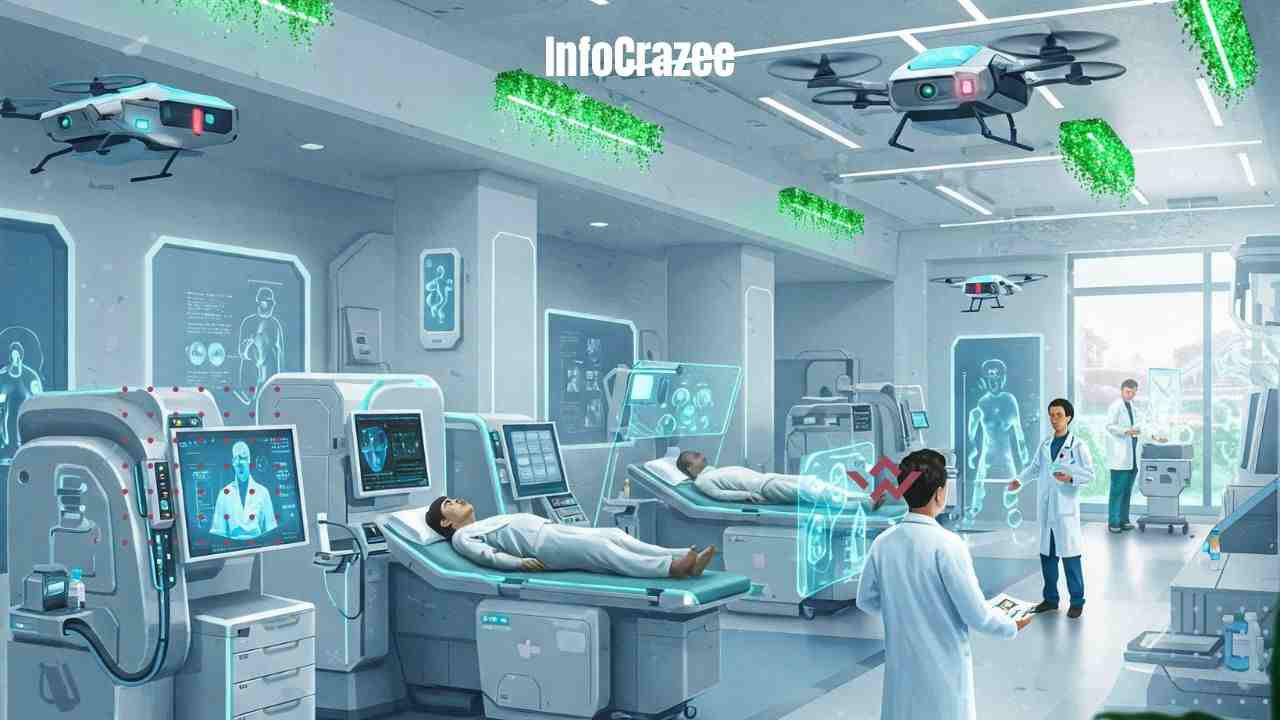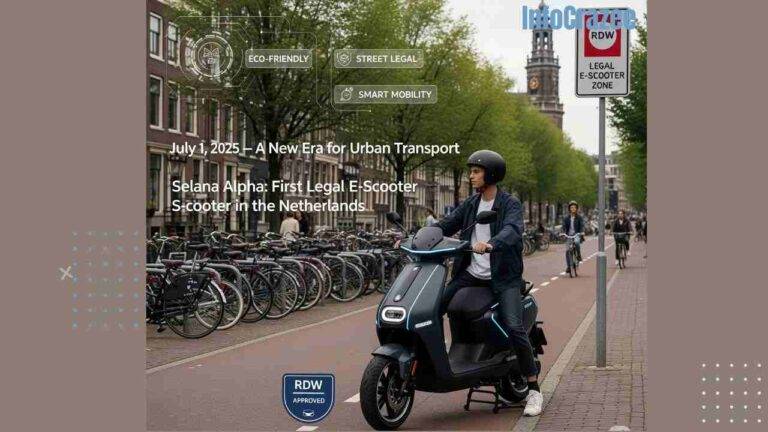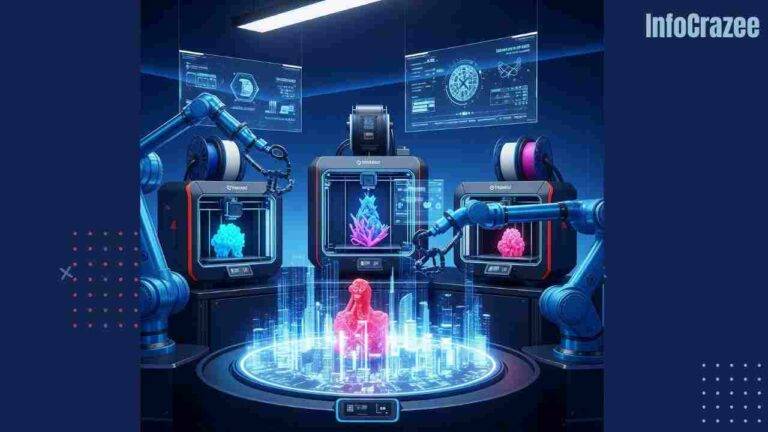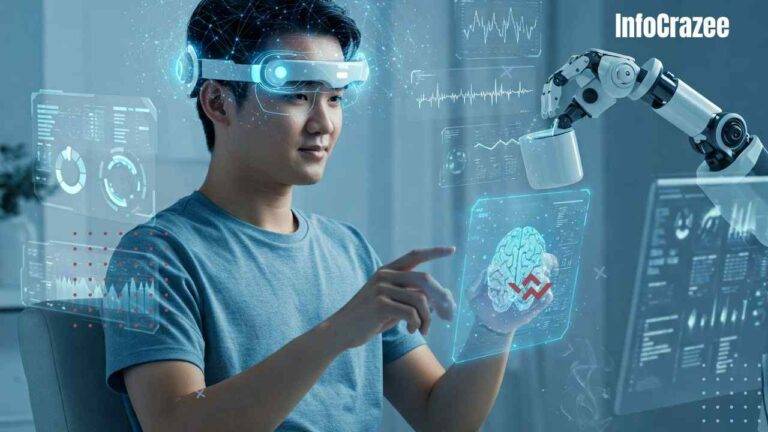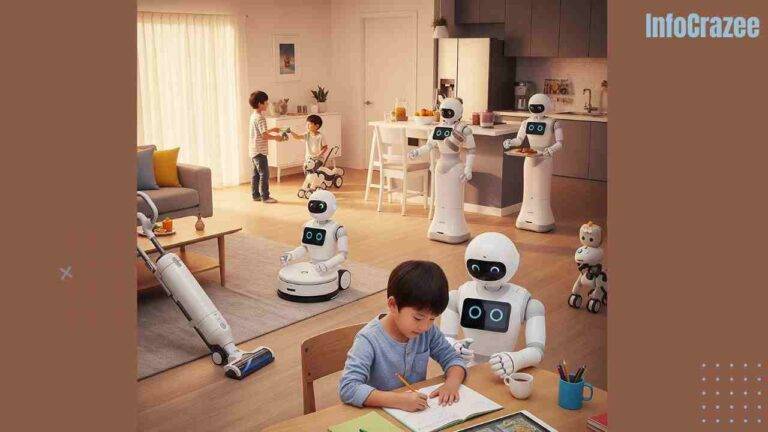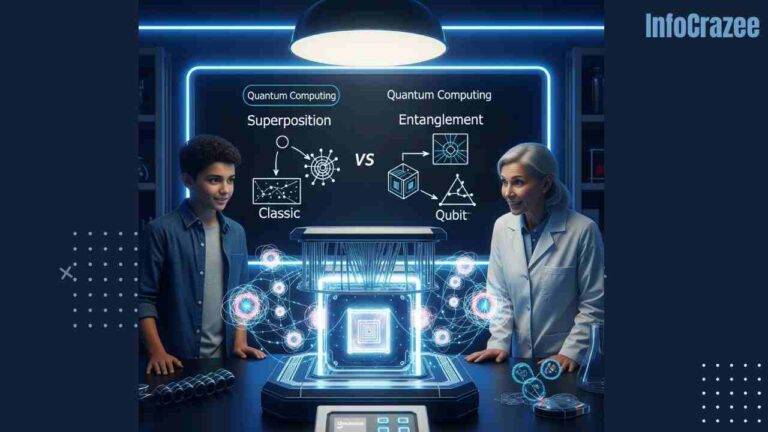How Future Technology Will Make Healthcare Smarter, Faster, and More Personal
The future of healthcare isn’t just about better hospitals or fancier equipment — it’s about making care smarter, quicker, and tailor-made for each of us. Thanks to amazing breakthroughs in technology, healthcare in the coming years will feel less like a waiting game and more like having a health coach by your side 24/7.
Let’s take a look at what’s coming and how it will change our lives for the better.
Smarter Diagnoses: AI Steps In
Imagine walking into a doctor’s office and getting a diagnosis almost instantly. That’s the kind of future AI is creating.
How It Works:
- AI-Powered Tools: Artificial intelligence can sift through tons of medical records, X-rays, and lab results in seconds to spot patterns that even experienced doctors might miss.
- Faster Results: Waiting days for test results could become a thing of the past. AI will help speed up the process, giving doctors answers faster — and getting patients the right treatments sooner.
Real-World Example:
Today, tools like Google’s DeepMind are already helping detect diseases like breast cancer earlier than traditional methods. By 2050, this kind of early detection could be routine for many illnesses.
Personalized Treatment Plans: One Size Won’t Fit All
Right now, treatments are often based on averages. But future healthcare will be customized for each individual, based on their unique genetic makeup and lifestyle.
What to Expect:
- DNA-Based Medicine: Doctors will use your genetic information to predict how you’ll respond to certain drugs, meaning fewer side effects and better results.
- Lifestyle Monitoring: Wearable devices will track your health habits and help doctors suggest personal improvements, whether it’s adjusting your diet or recommending a new exercise routine.
Real-World Example:
Imagine your smartwatch telling your doctor how well you’re sleeping, how stressed you are, and how your heart’s doing — all before you even walk into their office. Your treatment will be based on real-time data, not just a once-a-year check-up.
Healthcare at Your Fingertips: The Rise of Telemedicine
Remember the days when you had to sit in a crowded waiting room for a minor check-up? By 2050, most doctor visits could happen right from your couch.
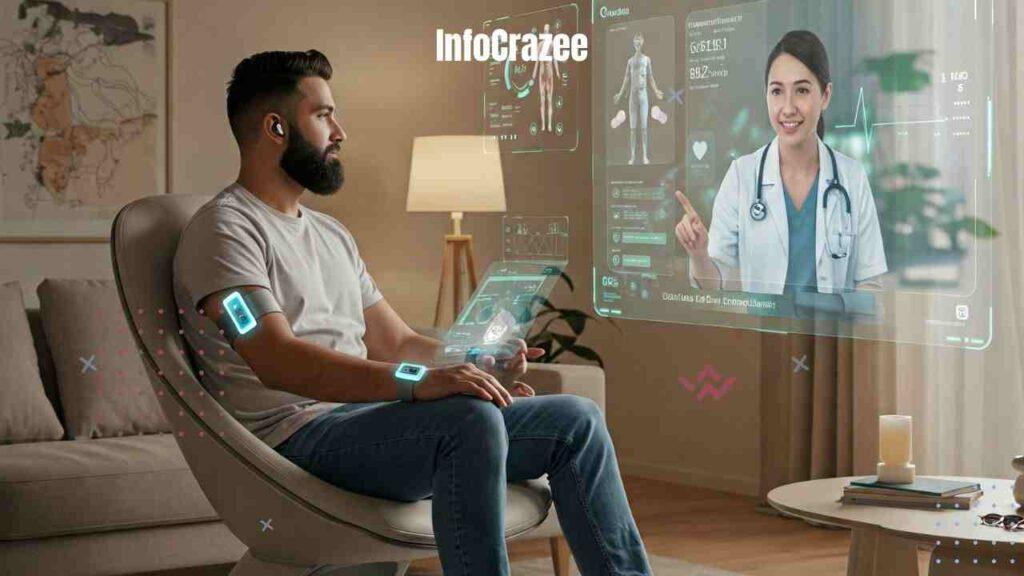
How It’s Changing:
- Video Consultations: See your doctor without ever leaving home. Perfect for busy schedules or those living in remote areas.
- Remote Monitoring: Devices will send real-time health updates to your healthcare team, alerting them to potential problems before you even notice symptoms.
Real-World Example:
Today, apps like Teladoc already let you consult doctors virtually. In the future, this experience will be even smoother, possibly including virtual reality check-ups where the doctor “appears” in your living room.
Smarter Hospitals: Less Waiting, More Healing
Hospitals themselves will also get a futuristic upgrade, becoming more efficient and patient-friendly.
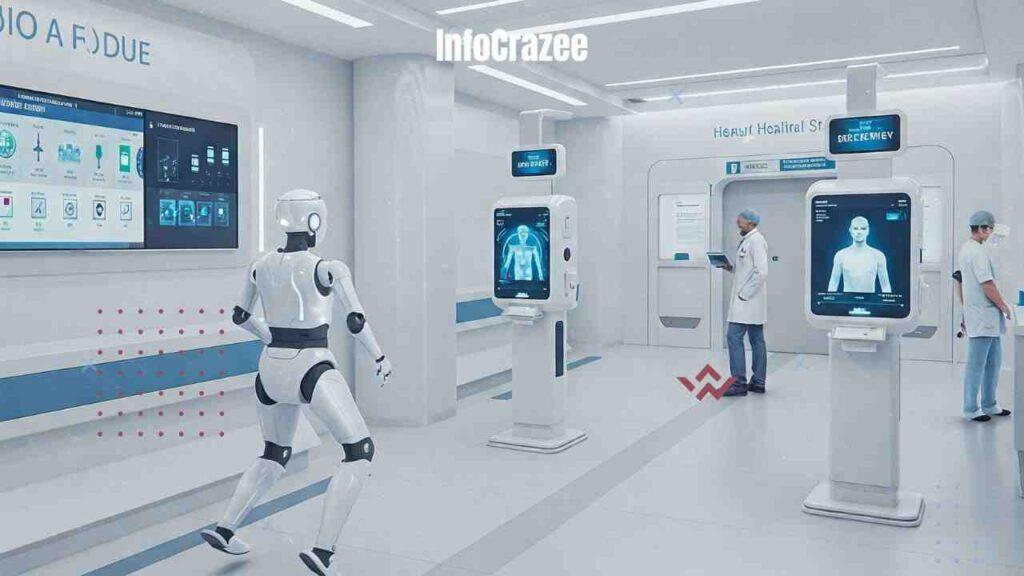
Innovations to Watch:
- Robot Assistants: Robots will help with everything from surgery to delivering medicine to patient rooms.
- AI Scheduling: No more long waits — smart systems will optimize schedules to ensure patients are seen as quickly as possible.
- Self-Service Health Stations: Imagine a mini-clinic where you walk in, scan yourself, and get instant feedback on your health.
Real-Life Story: A Glimpse into the Future
Meet Sarah, a busy mom of two in 2050. Her smartwatch detects unusual heart rhythms while she’s grocery shopping and sends a notification to her doctor. Within minutes, she’s having a video consultation, and a drone is dispatched with medication she needs. All without her having to leave the store.
That’s the power of smarter, faster, more personal healthcare.
FAQs
1. Will future healthcare be affordable for everyone?
Many experts believe technology will eventually make healthcare cheaper by catching illnesses early and reducing hospital stays. However, it’s important for governments and companies to focus on making these technologies accessible to all, not just the wealthy.
2. Can AI fully replace doctors?
AI can help doctors by analyzing data faster and spotting trends. But human doctors bring something no machine can match — empathy, critical thinking, and experience. In the future, AI and doctors will work together, not replace each other.
3. Are wearable health devices safe and accurate?
Modern wearables are already very good at tracking basic health data like heart rate and steps. In the future, they’ll become even more accurate, sophisticated, and medically approved, making them a trusted part of your healthcare journey.
Final Thought:
The future of healthcare is about making it smarter, faster, and all about you. With new technology, your health will no longer be something you only think about when you’re sick. It’ll be a part of your everyday life, quietly working in the background to keep you at your best.
